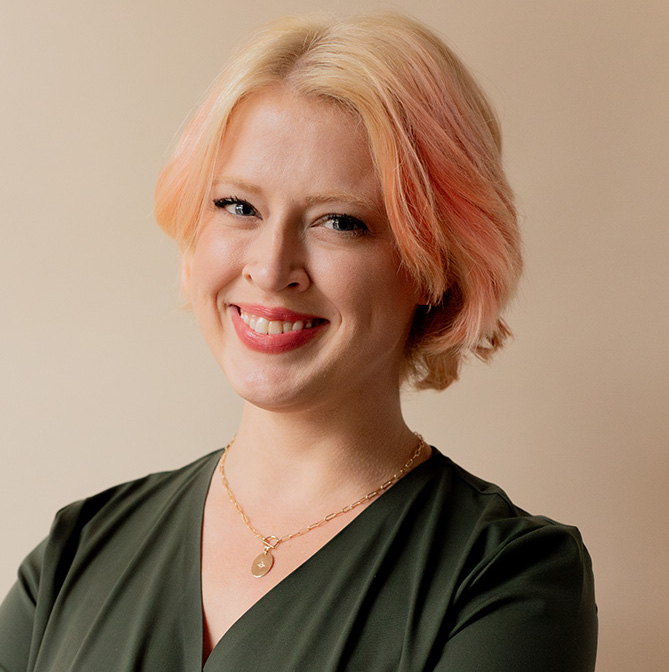
On Being The Breadwinner: How To Talk About Money When You Earn More Than Your Partner
I’ve earned more than my husband
my whole marriage.
Shortly after we got married, my husband and I moved to Los Angeles from Indiana for sunshine, city life, and opportunity. As he navigates his acting and comedy career, we play a delicate balancing game of sorting out our financial life together.
At times, we’ve even been a single-income family of two humans and two voracious rabbits (who eat more vegetables than I do). On top of the gig-based nature of my husband’s work, he now works part-time to help us better plan and budget. Nevertheless, I’ve been the “breadwinner” throughout it all.
I cringe at the term “breadwinner,” although I’ll use it briefly here because it paints a familiar picture of our financial dynamic. The roots of the term feel patriarchal and steeped in unequal power dynamics, in a way that conveys without me, you wouldn’t have bread to eat. It feels like a dominance play—and vaguely threatening.
Not to say that I’m free from those ideas. After I first pitched this story, I worried, what will people think of me and what will people think of my husband? My ego still clings to shreds of “traditional” (read: upsetting and antiquated) ideas of what a man should provide, and therefore, what I should provide as a woman. But conversely, my intuition tells me that everything is happening at the right pace, at the right time, for the right reasons.
Money is almost always emotional
In a world where money means access to our most basic needs, like food, healthcare, housing, and transportation, it feels like an obvious and tangible way to measure success. For me, and most others, that means conversations around money feel like conversations about whether you’re succeeding at life—or failing. It also brings up uncomfortable discussions about power, and who holds it.
Once you introduce the elements of long-term partnership, disparate incomes, and shared bank accounts and expenses, it becomes even more complicated. In the spirit of full transparency, there are days I long for my partner and I to have equal incomes; there are days I wish we had lower expenses (hello, Los Angeles); there are days I wish I could just sip Arnold Palmers by the pool while my husband rakes in corporate big bucks.
Almost every conversation we have about money circles around our emotional relationships to it. After a decade together, there are still layers of experiences we must unpack together before we can arrive at an efficient financial strategy. And from what I hear from friends and family, this is normal—it’s a long and winding process. Long-term relationships inevitably face healthy dynamic shifts throughout their courses, and a shared financial life is no different.
But once I look beyond finances, I see what else we’ve been working hard to build: a supportive, encouraging relationship built upon shared resources. In our case, the money that comes in is our money, and it helps support a life we continue to opt into together.
“But once I look beyond finances, I see what else we’ve been working hard to build: a supportive, encouraging relationship built upon shared resources.”
Seeking equal outcomes
What’s important in our relationship is that we’re always communicating about our incomes, so that we can achieve the outcomes we desire. (See what I did there?)
Whether it’s individual, or as a couple, we have frequent check-ins about our progress. Do I have enough creative space and household support? Does he have the resources to take classes that will help him build a stronger foundation for himself? Are we setting time and money aside for us to nurture our relationship regularly? And, most importantly, is this still a healthy dynamic for us at this time?
I’m not saying these conversations are easy, and they’re not always neutral. But by sharing our big-picture goals and discussing the time and money resources we need to get there, we can reverse engineer our roles. Sometimes that means more or less work for one of us; sometimes it shows up as compromises from both of us.
Managing unbalanced incomes is, yes, always a balancing game.
How we handle conversations around money
The most helpful neutralizing tool I use is a simple Google Spreadsheet. I track our expenses manually, and use formulas to display up-to-date numbers like savings, checking, and credit card balances. So, rather than having money discussions solely based on how I’m feeling on that day (and my emotions around money change constantly), we pull up the sheet and discuss precisely where we’re at and where we want to go.
I know there are services like Mint that can do this for me, but I like to make a regular practice of sitting down and recording expenses myself. It gives me an extra touchpoint into what we’re spending—when, how, and why.
“Sticking with the numbers and the facts of where we’re at helps us minimize emotions in the conversation.”
We also have regular check-ins on our upcoming expenses: he needs new headshots, I need to book a flight to Seattle, we both need to budget time and money for a trip back to our hometown. Sticking with the numbers and the facts of where we’re at helps us minimize emotions in the conversation.
Ultimately, the most important thing to remember (and remind yourself frequently) is this: salary is not the same as value. Salary. Does. Not. Equal. Value.
Admittedly, my husband and I could base a lot more of our discussions on this idea. What actual value are we bringing to one another? What support—emotional, physical, spiritual, mental, and, yes, financial—is the most valuable to each other at this time?
I feel this urge to be worth money in my partnership so often that I forget to ask myself: am I worth the time? Am I, at the end of the day, a whole and fulfilled person who supports and loves those around me? Our relationships don’t live and breathe by the money we bring in, but the time and energy we invest in each other.
Because there can always be more money, but there can never be more time.
“Our relationships don’t live and breathe by the money we bring in, but by the time and energy we invest in each other.”
RELATED READING
Emily Torres is the Managing Editor at The Good Trade. She’s a Los Angeles transplant who was born and raised in Indiana, where she studied Creative Writing and Business at Indiana University. You can usually find her reading or writing, caring for her rabbits, or practicing at the yoga studio. Say hi on Instagram!

